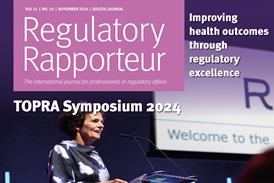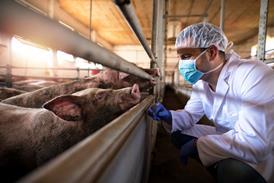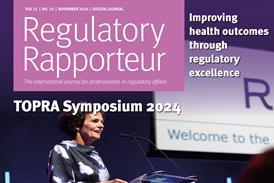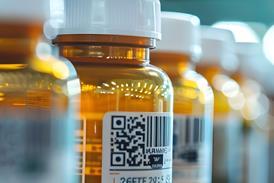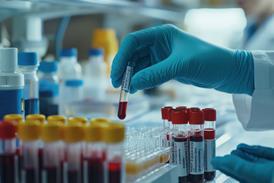All Journal articles – Page 12
-
 Journal
JournalCMC considerations for US biosimilars development
The US Biologics Price Competition and Innovation Act of 2009 (BPCI Act) provides an abbreviated licensure pathway for biosimilar products. This pathway brought the hope of lower cost biologics, perhaps similar to what was accomplished by generics for small molecule drugs. Twelve years have now passed since the BPCI Act and experience continues to be gained with biosimilars development…
-
 Journal
JournalA regulatory view on the change management process for medicinal products
An effective change control process is a critical part of good manufacturing practice (GMP), during the post-approval phase of a medicinal product’s lifecycle. This article reviews key aspects of the current EU and International Conference on Harmonisation (ICH) quality guidelines. The operational aspects of the change control process are explored and guidance is provided on how the strategic review of changes can avoid or minimise the regulatory impact.
-
 Journal
JournalAmgen’s experience of global expedited regulatory pathways in the development of sotorasib (Part 1)
On 28 May 2021, sotorasib (LUMAKRAS™/LUMYKRAS®), a novel, first-in-class, inhibitor of the RAS GTPase family became the first drug to be approved by the US Food and Drug Administration (FDA) to target Kirsten rat sarcoma proto-oncogene (KRAS) G12C. For 40 years, this condition had been considered undruggable. Sotorasib became the first approved targeted therapy for the treatment of adult patients, with previously treated KRAS G12C-mutated locally advanced or metastatic non-small cell lung cancer (NSCLC). The approval was achieved in less than three years from first in human (FIH) exposure. This case study provides regulatory insights into the global expedited pathways and special designations, which were utilised during the development and marketing application review.
-
 Journal
JournalA review of paediatric development challenges, FDA collaboration and future trends
Susan McCune M.D. Susan McCune M.D., is a paediatrician and neonatologist, with 18 years’ academic clinical and research experience. This was followed by 18 years at the US FDA where, from 2017 to 2021, she was the director of the Office of Pediatric Therapeutics in the Office ...
-
 Journal
JournalThe national competent authorities of Belgium and Luxembourg share their views about the e-PIL Pilot
Q: Why do the authorities support the e-PIL Pilot and why do you think it is important? A: Iris Geussens: Digitalisation is the future, and the pharmaceutical sector cannot stay behind. The advantage of an electronic package leaflet is that you always have access ...
-
 Journal
JournalPlanning for the future: sustainable medical devices
Pharmaceutical and medical device companies are increasingly looking at new ways to incorporate sustainability into their strategies in a bid to help the environment. While existing medical device standards do not address sustainability explicitly, ISO working groups and others are now considering sustainability as an important component of medical device development. The heavily regulated world of medical devices will likely see sustainability standards emerging in the next decade.
-
 Journal
JournalElectronic leaflet pilot in Belgium and Luxembourg hospitals
The e-PIL Pilot was set-up in Belgium and Luxembourg with the objective to demonstrate the equivalence between the paper patient information leaflet and the electronic patient information leaflet in providing information on the safe and effective use of medicines in hospital setting. The first results of the Pilot are promising ...
-
 Journal
JournalBrexit: The regulatory landscape one year on
A year since the UK departed from the EU, what has changed? The UK has started to depart from the EU in a number of different ways. This article will explore what has changed, how it came about and what to look out for as the relationship between the UK and EU, as well as the rest of the world, continues to evolve.
-
 Journal
JournalNavigating the regulatory landscape for regenerative medicines in Japan
This is the final article in a series of three that critically analyse the differences and similarities between the regulation of advanced therapy medicinal products (ATMPs), also known as regenerative medicines…[1],[2]
-

-
 Journal
JournalHype over hemp as a veterinary feed additive?
There has been much talk about the positive effects of CBD for human health, and there is some suggestion this could apply to animals. Is this desirable – or even legally feasible? Using Germany as a case study, we examine whether – and under what conditions – CBD could be ...
-
 Journal
JournalSelection and justification of regulatory starting materials
A regulatory starting material (RSM) is the registered point at which drug substance manufacturing under good manufacturing practice (GMP) begins. RSMs are defined, isolated materials that are required to meet the general principles outlined in ICH Q11. This article provides guidance for small molecules in selecting and justifying starting materials from a risk-based perspective.
-
 Journal
JournalRequirements for the good distribution practice of medicinal products
No standardisation or formal educational framework to practice as a Responsible Person (RP) currently exists across EU countries. The current RP educational and work experience requirements in EU member states are discussed. (Note that the study was conducted before the UK left the EU, so it is included here among the EU member states.)
-
 Journal
JournalSubstance-based medical devices: regulatory challenges and prospects
Substance-based medical devices comprise a diverse group of products that are regulated under the Medical Devices Regulation, which is applicable since 26 May 2021. Compared with the previous legal framework, the MDR has introduced several extensive changes to the regulatory framework for medical devices that also impact on the marketing of substance-based medical devices in the EU…
-
 Journal
JournalNonclinical immunogenicity evaluation in toxicology studies of biopharmaceuticals
One of the critical features that determines the clinical efficacy and safety of biotherapeutics, especially therapeutic proteins, is their ability to induce formation of antibodies against themselves. However, the clinical outcome cannot be predicted using the immunogenicity data from nonclinical studies…
-
 Journal
JournalOn the path to adoption of decentralised clinical trials
Decentralised clinical trials (DCTs) offer great potential to improve the clinical trial paradigm, bringing more diversity and less burden to the participants we serve. COVID-19 has driven DCTs, offering greater flexibility to clinical trial patients. More needs to be done to make DCTs a standard option.
-
 Journal
JournalFundamentals of regulatory writing: the document development process
Regulatory writers lead the development of high-quality regulatory documents by working in collaboration with colleagues across multiple functions. Document development is a multistep process with the regulatory writer acting as project leader. This article describes each of the stages of the process and suggests best practices for achieving timely project completion and document delivery
-
 Journal
JournalGene therapy: regional assessment comparison
Axicabtagene ciloleucel (tradename YESCARTA) is an autologous chimeric antigen receptor T-cell (CAR-T) therapy that targets CD19 and is approved for the treatment of aggressive, relapsed or refractory forms of B-cell non-Hodgkins lymphoma (NHL). The active substance is composed of a patient’s cells that have undergone ex vivo modification, which causes ...
-
 Journal
JournalGlobal regulatory frameworks for the development of gene therapy products
Gene therapies have the potential to revolutionise the global healthcare system. Some of these products may offer curative benefits to patients with devastating conditions. This continuing professional development (CPD) supplement provides an overview of the regulatory framework for the development of gene therapy products in key markets.
-
 Journal
JournalEU PIP breast implant withdrawal
The Poly Implant Prothèse (PIP) silicone breast implant failures had a socioeconomic impact at an international level, affecting nearly 400,000 patients in 55 different countries,[1] and resulted in major EU regulatory updates. PIP was a French company founded in 1991 and it produced approximately two million sets of silicone breast ...




